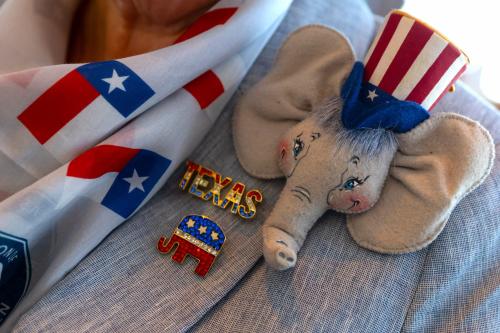Perhaps nothing reflects the absurdity of the current state of governance than the seriousness accorded to the idea of the Treasury issuing a $1 trillion platinum coin. The idea is for Treasury to mint the coin, ship it to the Federal Reserve, which then pays for it by crediting $1 trillion into the Treasury’s deposit account at the Fed, which is then available to finance our government obligations. As the Treasury spends the money, bank reserves rise, but that’s not inflationary now with the economy still weak. Ultimately, as explained by Greg Ip of the Economist, the Fed can stem inflation by raising the interest rate it pays on bank reserves. The end result is that we would no longer need to raise the debt ceiling (since we don’t need to borrow this $1 trillion), and thus a government default is averted. When (if?) the ceiling is raised, the process is reversed and the coin is melted.
The sole virtue of the platinum coin idea is that it is better than hitting the debt ceiling, which could happen as soon as mid-February and would leave the government unable to fund about 40 percent of its obligations. As Chairman Ben Bernanke said, this “would no doubt have a very adverse effect very quickly on the recovery. I’m quite certain of that.”
But this was still a very bad idea, and Treasury was right to rule it out as an option. It would have involved the Fed in direct, off-market, financing of the government, compromising its independence. It would have relied on a loophole in a law designed to allow Treasury to issue coins of any denomination for commemorative purposes. It may or may not have held up in court, but it likely would have been challenged, creating legal uncertainty and perhaps even a Constitutional crisis if Congress challenged what would have been, in effect, the president’s usurping control of monetary policy. The result would have been market turmoil, broad economic harm, and evidence to the world of our inability to govern ourselves.
I also agree with Tyler Cowen and Scott Sumner that the more this idea is put on the table, the more likely the Republicans are to not vote to raise the debt ceiling. If the choice is between raising the debt ceiling and economic calamity, public opinion and its effect on political self-preservation will lead Congress to choose the former (albeit, only after a period of brinksmanship). If, on the other hand, the president embraces a bizarre idea of dubious legality, it makes political sense for the Republicans to not raise the debt ceiling and let the president pay the political consequences of the resulting legal and economic market turmoil.



Commentary
Op-edA Trillion Dollar Coin Would Compromise the Federal Reserve
January 14, 2013